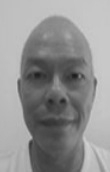Seminar on "Does Haze Cloud Decision Making? A Natural Laboratory Experiment."
Abstract
The adverse impact of air pollution on health is well known. There is an emerging literature, especially in environmental economics, of its relationship with a range of economic outcomes. These point to a potential role for decision making as intermediary between air quality and economic outcomes. A natural laboratory experiment involving more than 600 subjects enables a first attempt at investigating the causal effect of air pollution directly on decision making. This study was conducted in Beijing over five days with highly varying levels of PM2.5 in October 2012, before the measure became commonly known in China at the beginning of 2013. We observed several effects of an increase in PM2.5. In individual decision making, we found an increase in aversion to risk and to ambiguity over gains as well as an increase in risk tolerance over losses together with greater impatience when discounting over a remote comparison. In other-regarding behavior, subjects became less prosocial: giving less in a dictator game, contributing less in a public goods game, reciprocating less in a sequential prisoners' dilemma, and demanding more as responders in an ultimatum game. In strategic thinking, we observed greater deviations from the dominant-strategy of bidding one's private valuations in a second-price auction, and a decline in iterative thinking in a p-beauty game. We also uncovered systematic gender difference in the impact of an increase in PM2.5. For decision making involving risk, the overall impact on males was greater for the two even-chance tasks which are more evaluative while it was greater on females for the two longshot tasks which are more affective. This pattern of gender difference appears to carry over to social decision making where the impact was stronger for males in the two efficiency-oriented games, namely public goods and sequential prisoner's dilemma, and stronger for females in the dictator game involving the moral sentiment of altruism. In iterative thinking, males showed greater decline than females. Taken together, our results provide a preferential foundation to reported findings linking short-term variations in air quality to real-world economic variables, including stock market performance, worker productivity, and crime.
Biography
Chew Soo Hong is a Professor at the National University of Singapore (NUS) and an Adjunct Professor at the Hong Kong University of Science and Technology (HKUST), and has previously taught at the University of California, Irvine, Johns Hopkins University and University of Arizona. He is among the pioneers in axiomatic non-expected utility models and is a fellow of the Econometric Society which awarded him the Leonard J. Savage thesis prize. Chew has directed HKUST's center for Experimental Business Research, inaugurated by Vernon Smith in 1998, and is co-director of NUS' lab for Behavioral x Biological Economics and the Social Sciences which aims to bring together genomics, neuroscience, decision theory, and behavioural and experimental economics to seek a deeper understanding of decision making at the neural and molecular levels. Chew has published in well regarded journals such as Econometrica, Journal of Economic Theory, and Review of Economic Studies as well as more biology-oriented ones including PRSB, Neuron, and PLoS ONE.




